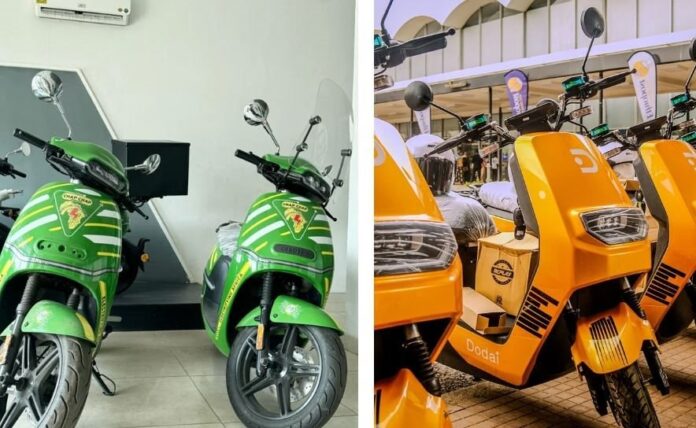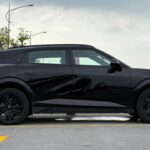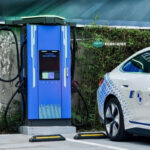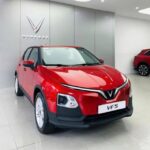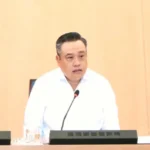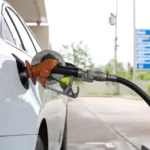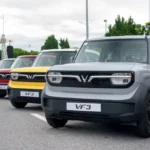Transsion Holdings, founded in Hong Kong in 2006, quickly established itself as the king of the budget phone market, especially in Africa, where its brands Tecno, Infinix, and Itel collectively captured over 50% of the market share. Now, the Chinese conglomerate has set its sights on a grander ambition: expanding into the electric vehicle realm, with a vision to conquer the streets of Africa.
In just a few years, Transsion transformed itself into a major player. In 2011, the company set up a factory in Ethiopia to shorten its supply chain and reduce costs, and by 2017, it officially surpassed Samsung to become the leading phone manufacturer in multiple African countries. In Q2 2023, Transsion entered the top five smartphone makers globally, with 22.7 million units shipped, capturing about 9% of the market share.
Transsion’s strategy is clear: affordable products tailored to local conditions (long-lasting batteries, multi-SIM support, and native language support like Amharic), coupled with a vast distribution network and excellent after-sales service. This model has allowed them to effectively penetrate segments that global giants have left untapped.
In 2023, Transsion unexpectedly launched the TankVolt brand, marking its official entry into the electric vehicle space in Uganda with its first e-bike. By mid-2025, TankVolt had expanded its reach to Nigeria, Kenya, Tanzania, and Ethiopia, aiming to become one of the top three EV brands on the continent.
TankVolt’s two-wheeled and three-wheeled electric vehicles are priced around $1,500 (approximately 40 million VND), directly competing with rivals such as Spiro (Benin), Ampersand (Kenya), and Dodai (Ethiopia), according to Rest of World. Transsion is not only investing heavily in production but also applying innovations from the phone industry: “battery-as-a-service,” technical support, and management software for vehicle fleets, similar to how they support mobile phone retailers and dealers.
Transsion’s strengths lie in its distribution network and deep understanding of the market. TankVolt leverages its existing channels, partnering with banks and financial partners like M-Kopa in Kenya to offer flexible financing options, and collaborating with logistics agents such as Swap Station Mobility in Nigeria. Their sales strategy also focuses on large orders, including a 5,000-vehicle order from the government of Niger in 2024.
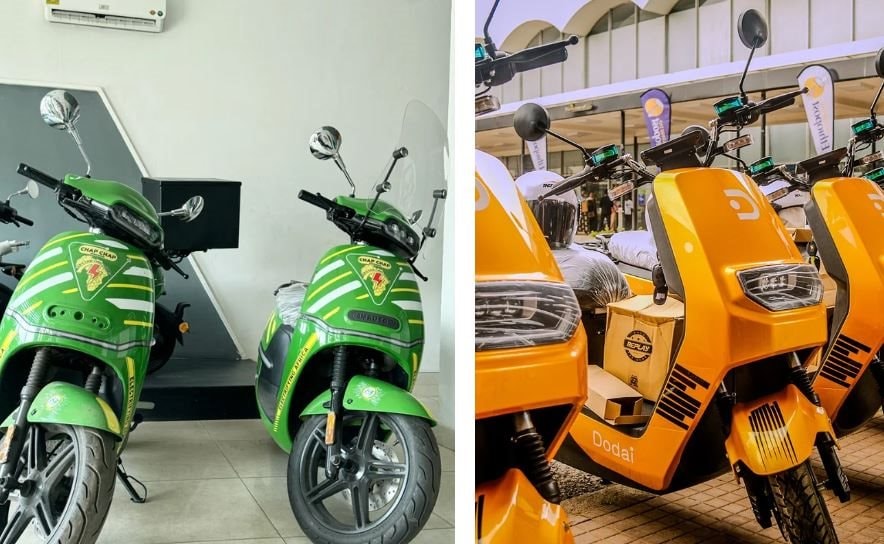
Of course, Transsion’s journey is not without challenges, mainly due to the task of building an EV charging ecosystem, logistics, and maintenance services in countries that are not yet ready for this shift. According to expert Tom Courtright, without building a robust infrastructure with local cooperation, Transsion will struggle to scale sustainably.
Additionally, local startups are not idle: Spiro has established a decent charging network in Benin, Ampersand dominates in Rwanda, and Dodai is building a reputation in Ethiopia. These are genuine rivals that demand TankVolt demonstrate its prowess beyond being a mere phone company venturing into new territory.
According to experts, if successful, Transsion could become a rare example of an Eastern company with multi-sector influence in Africa, spanning from mobile phones to electric wheels. TankVolt possesses the distribution chip card, market understanding, and financial prowess—enough to turn the electric vehicle dream into a reality.
However, the “copy-paste” model from the smartphone industry doesn’t always translate effectively into the automotive sector, which demands higher quality. A modern car is akin to a “smartphone on wheels,” even sharing operating systems, but focusing solely on this similarity can cause companies to overlook the inherently distinct technicalities, supply chains, and safety expectations.
A case in point is LeEco (China). Once dubbed the “Netflix of China” for its success in streaming, LeEco later ventured into smartphones with its LePhone and found remarkable success. When the electric vehicle trend emerged, founder Jia Yueting declared he would create a “smart supercar” to rival Tesla and promptly established Faraday Future (FF) in the US with billions of dollars in investment.
However, LeEco’s mistake was in applying the exact growth model from smartphones to automobiles: prioritizing software development, flashy advertising, and money-burning for brand image, while lacking actual production capabilities. Consequently, the FF91, introduced in 2017, has yet to enter mass production as of 2023.
In reality, smartphones have a short product life cycle, and users are generally accepting of minor risks (app glitches, overheating), which can be rectified via software updates. Competition primarily revolves around design, performance, and price.
In contrast, automobiles are substantial assets with a lifespan of 10–15 years. A software glitch in a car can lead to accidents and even fatalities. Consumers expect their vehicles to be safe, durable, and easy to maintain—not just possess a fancy display or smart applications. That’s why traditional automakers like Toyota, Ford, and Mercedes have stringent testing protocols that span years before a car is released to the market.
Source: Rest of World, SCMP
The Road to a Greener Hanoi: A Bold Vision to Reduce Traffic in the City’s Heart
“Hanoi’s People’s Committee Chairman Tran Sy Thanh emphasized the city’s determination to foster urban development and enhance its cleanliness and aesthetic appeal. To achieve this vision, Hanoi will persist in its plan to reduce the number of motorbikes in four key inner districts, marking a significant step towards a more modern and sophisticated urban landscape.”


























